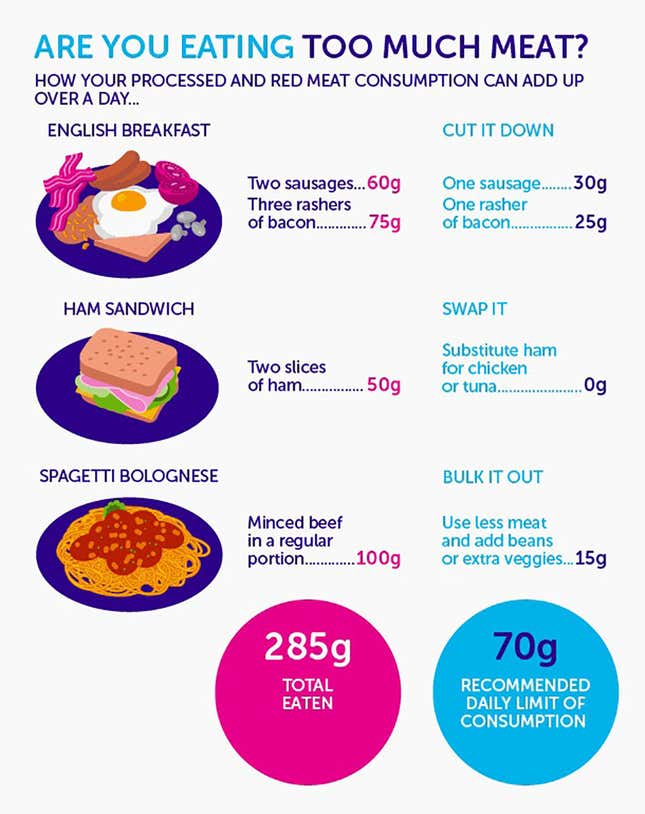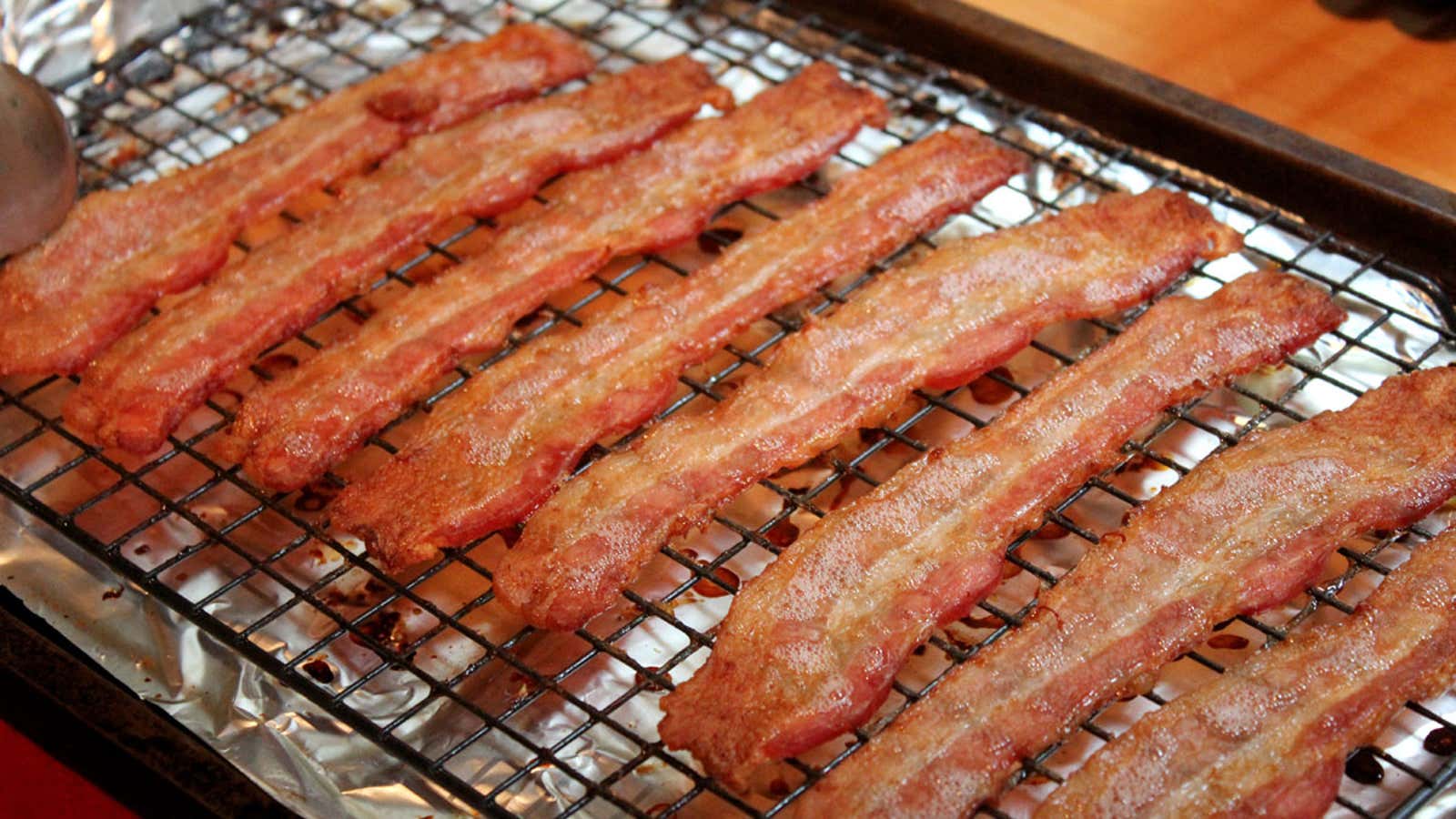Meat is a problem, says the world authority on cancer risk, the International Agency for Research on Cancer (IARC). On Oct. 26, the organization announced that processed meat can “definitely” cause cancer and red meat can “probably” cause cancer.
The IARC, a subsidiary of the World Health Organization, came to this conclusion based on more than 800 studies. But what troubles many is that the declaration puts processed meats in the same carcinogenic category as tobacco smoking, and red meat in the same category as the controversial pesticide glyphosphate. Is bacon as deadly as smoking?
IARC’s lists are a measure of how confident the agency is that something causes cancer or not. It does not tell us the rates of cancer being caused by the agents on its lists. David Phillips, professor of environmental carcinogenesis at King’s College London, explains it this way:
To take an analogy, think of banana skins. They definitely can cause accidents—but in practice this doesn’t happen very often (unless you work in a banana factory). And the sort of harm you can come to from slipping on a banana skin isn’t generally as severe as, say, being in a car accident. But under a hazard identification system like IARC’s, “banana skins” and “cars” would come under the same category—they both definitely do cause accidents.
Red and processed meat is bad, but it is still not as deadly as smoking. For comparison, while smoking caused 86% of all lung cancer cases in the UK in 2012, red and processed meat caused only 21% of all bowel cancers, according to Cancer Research UK.
So how much is a “sensible” amount of meat? There is no easy way to answer that question. All we know is that the less you eat red and processed meat, the lower your risks of cancer.
But if bacon addicts want their fix, perhaps it’s worth following the UK government’s advice. Try to cut down your total consumption of red and processed meat to under 70g per day. It’s also worth noting that there is no strong evidence linking fresh white meat—turkey, chicken, or fish—with any type of cancer.

So despite all the news, the advice for staying healthy remains the same: eat plenty of fibre, fruit, and vegetables; cut back on red and processed meat, and salt; and limit your alcohol intake. For a healthy life, moderation is still the virtue.
